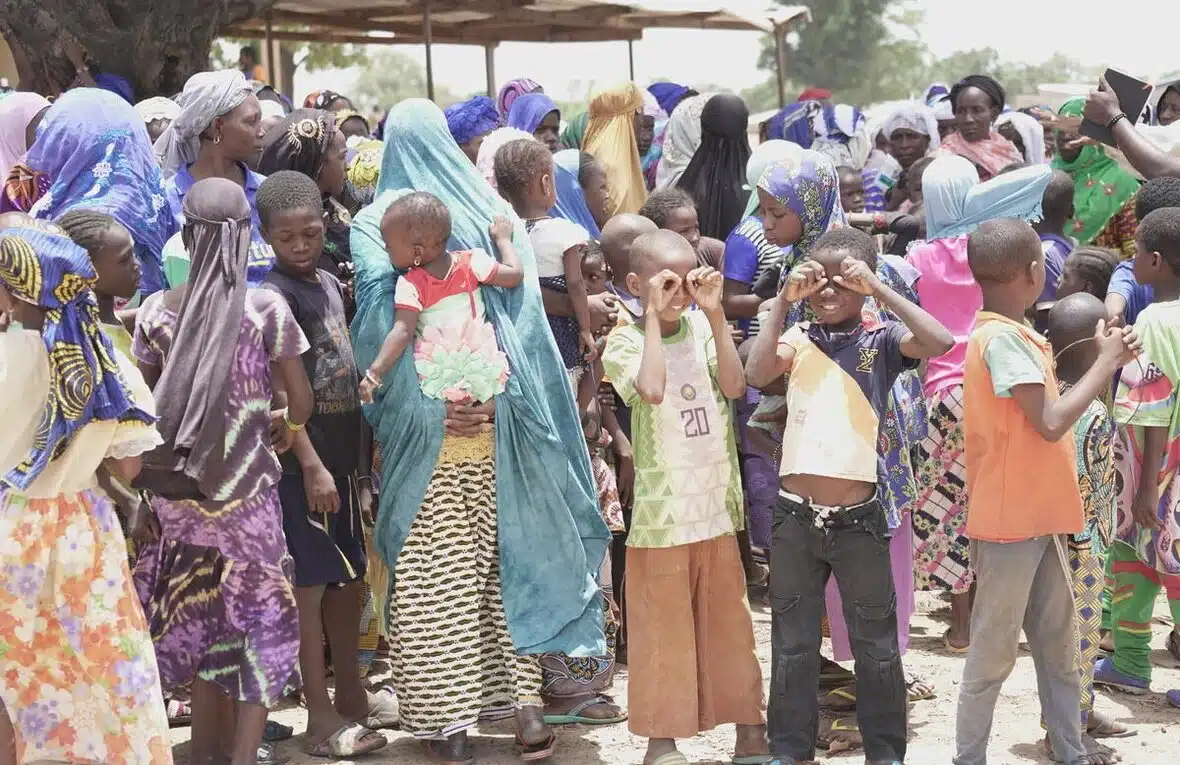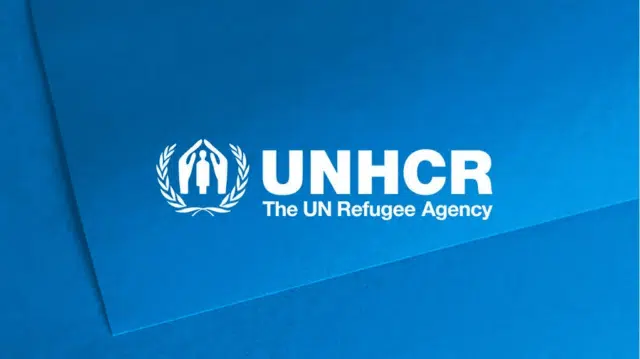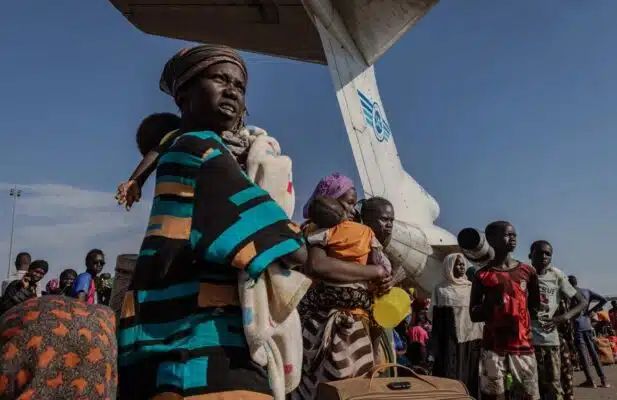
Women and children from Burkina Faso wait to be registered by UNHCR partners in Côte d’Ivoire. © UNHCR/Insa Wawa Diatta
This is a summary of what was said by Elizabeth Tan, UNHCR’s Director of International Protection – to whom quoted text may be attributed – at today’s press briefing at the Palais des Nations in Geneva
GENEVA – UNHCR, the UN Refugee Agency, has today released updated guidance on the protection of people fleeing Burkina Faso, urgently appealing to all States to refrain from forcibly returning any individuals originating from the regions most affected by the ongoing crisis in the country.
As the security situation in Burkina Faso continues to deteriorate, UNHCR is gravely concerned by the widespread insecurity and human rights violations perpetrated against civilians.
These include killings, forced disappearances, torture and kidnappings. In several instances, civilians have been targeted and killed, resulting in mass civilian casualties.
Children are also exposed to risks of serious human rights violations such as forced recruitment by armed groups, child labour in its worst forms, as well as other types of violence, abuse, exploitation and gender-based violence (GBV).
The number of school closures has increased from approximately 3,000 schools in November 2021 to 6,334 schools as of 31 March 2023. The majority of displaced children are unable to attend school. Early and child marriage is prevalent and forced marriages continue to be reported. Half of all children in Burkina Faso are estimated to be exposed to GBV or mistreatment, with the estimate as high as 82 per cent for girls. Ongoing violence and displacement have also left many women vulnerable to GBV, including sexual violence, and have restricted services available to survivors.
An estimated 4.7 million people across the country are now in need of humanitarian assistance – over 20 per cent of the country’s population. Violence and conflict have also destroyed critical infrastructure and impacted state services and institutions, including in conflict-affected areas. The humanitarian situation is especially severe for people living in towns that have been blockaded by violent extremist groups, including large numbers of internally displaced people.
As of June 2023, over 67,000 people from Burkina Faso have sought refuge in neighbouring countries such as Mali, Niger, Ivory Coast, Togo, Benin and Ghana, while more than 2 million people are internally displaced in their country, making it one of the worst internal displacement crises on the African continent.
UNHCR considers that individuals escaping worsening insecurity and human rights violations in Burkina Faso are highly likely to require international protection. In this regard, the principle of non-refoulement must be respected and upheld, ensuring that no one is forcibly returned to places where their lives, freedom, or human rights are at risk.
UNHCR calls on all countries to allow civilians fleeing Burkina Faso access to their territories.
UNHCR’s updated advisory against forced returns to Burkina Faso remains in effect until security, rule of law and human rights conditions significantly improve to allow for safe and dignified returns.
UNHCR also calls upon the international community to stand in solidarity with displaced populations from Burkina Faso and the neighbouring countries that are hosting them and to continue to provide support in addressing the humanitarian needs.
For more information, please contact:
- In Dakar (regional), Alpha Seydi Ba, baalp@unhcr.org, +221 773 457 454
- In Geneva, Eujin Byun, byun@unhcr.org, +41 79 747 87 19




